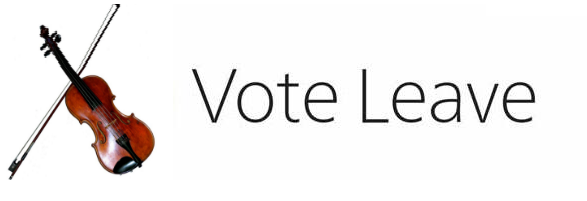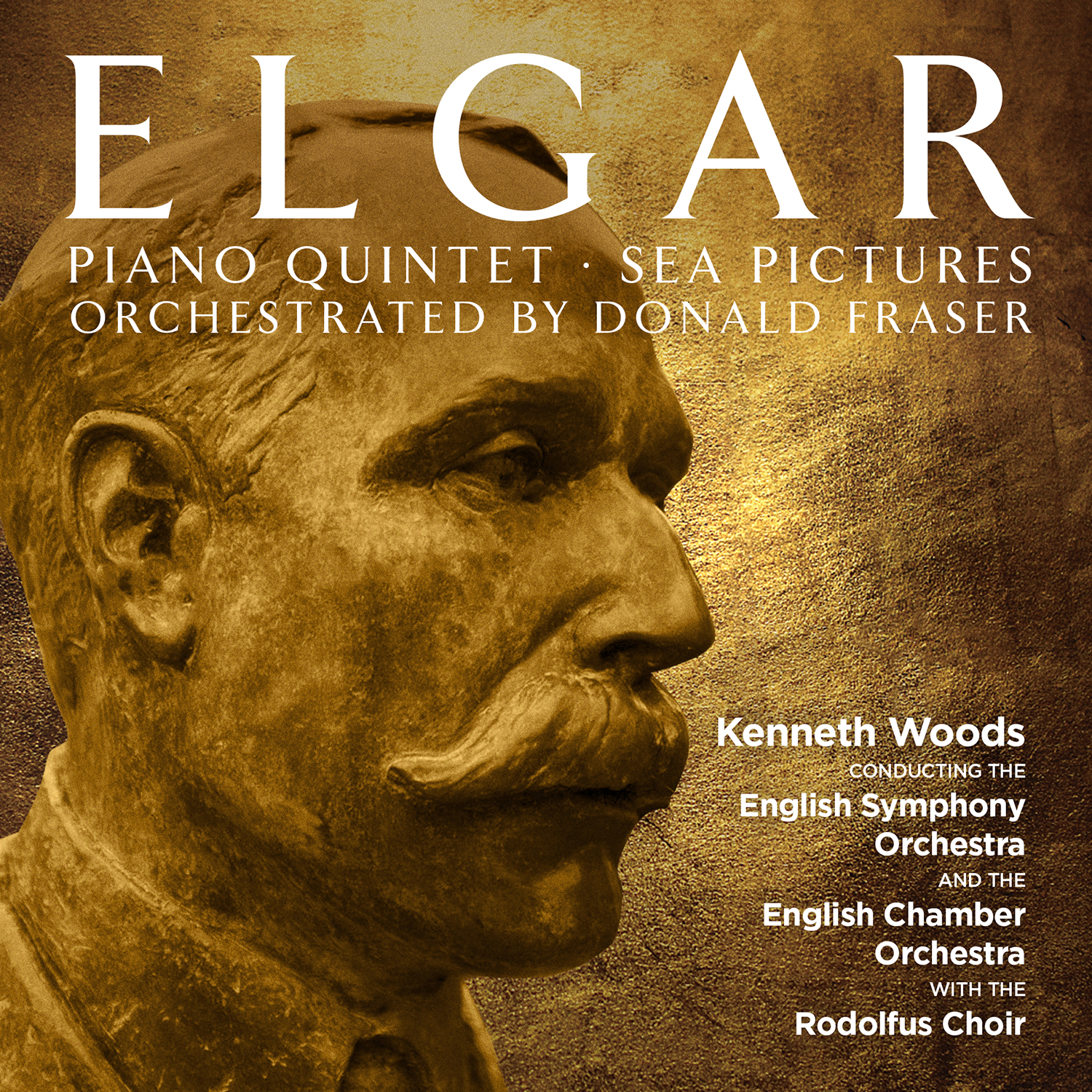The second violin section of the Brumington Symphony Orchestra are bracing for a vote on whether to leave or remain in their orchestra. The upcoming referendum has created anxiety throughout the orchestra amidst concerns that the second violins, who are the second largest section in the orchestra, are leaning towards a so-called Brexit (an exit from the Brumington Symphony).
 Although the orchestra is one of only 12 salaried orchestras in the country and provides the second violins with a generous pension, paid sick days and funding for personal artistic development, some in the second violins feel that they have lost control over musical decision making. “It’s outrageous that we often don’t even control which direction our bows are going,” said Martin Geigeflegel, one of the organisers of the Leave campaign. “We’re constantly expected to match the first violins’ bowings, which are set by the leader, who is not a member of our section. Some bowings are even set by the conductor, who is not even a member of the orchestra. Voting Leave will restore our musical sovereignty- second violin bowings should obviously be decided by second violin players.”
Although the orchestra is one of only 12 salaried orchestras in the country and provides the second violins with a generous pension, paid sick days and funding for personal artistic development, some in the second violins feel that they have lost control over musical decision making. “It’s outrageous that we often don’t even control which direction our bows are going,” said Martin Geigeflegel, one of the organisers of the Leave campaign. “We’re constantly expected to match the first violins’ bowings, which are set by the leader, who is not a member of our section. Some bowings are even set by the conductor, who is not even a member of the orchestra. Voting Leave will restore our musical sovereignty- second violin bowings should obviously be decided by second violin players.”
It is clear that some of the discontent in the second violin section stems from frustrations with the dominance of the first violins, who are the largest section in the orchestra and get to play most of the memorable tunes. “When we came together with the woodwinds, the brass and the rest of the strings to form a musical union,” said Myrtle Shyftmysser, the long-time third assistant principal second violinist of the orchestra, “it was about creating a common marketplace for our musical talents. The first violins have become too dominant- they drive too much decision making and get too much audience attention. Frankly, I hate them all.”
Concerns have been raised as to whether a second violin Brexit would lead to the dissolution of the entire BSO, which has been riding high on a wave of critical adulation, sold out concerts, and one of the most lucrative recording contracts in the UK, one which is reported to generate dozens of pounds in income for the orchestra every year. The orchestra’s CEO Petri Jätehuolto said it would be a step into the unknown, “It is extremely unusual for an orchestra to perform without a second violin section. While they contribute very little to the music making of the orchestra overall and don’t seem to ever play a melody, they do take up quite a lot of space on stage, and I’m very concerned about whether audiences will think they’re getting value for money at our concerts when there is such a large open space on the stage. We’re currently looking at whether putting some small sculptures or possibly a water feature on stage would be a suitable alternative to a second violin section.”
Jätehuolto’s remarks brought Geigeflegel back to one of the major concerns of the Leave the Orchestra campaign- that too much decision-making power was in the hands of un-auditioned bureaucrats. “Jätehuolto and his team sit over there in the office building and decide who is going to conduct, what time rehearsal starts and what colour the posters are, and he’s never had to learn the first page of Don Juan.”
Leaders of the Leave campaign have expressed confidence that once they leave the BSO, the second violins will quickly be able to negotiate a new relationship with the orchestra’s audience for independent concerts. “We won’t be the first group outside the orchestra to perform in Market Hall [which is owned and operated by the BSO], said Shyftmysser, “the Tackacs Quartet and Lang Lang both did concerts last year which sold just as well as the orchestra, and we’re confident that once we’ve reclaimed our artistic independence, the market for our services will be better than ever. Personally, I think the BSO’s programming has become too highbrow, which is why I’ve suggested starting our new Second Violins Live series with a ViennaFest concert featuring all the best second violin parts by Johann Strauss Jr. I’m sure the audience will find it really exciting.”
Concerns have also been raised about the uncontrolled influx of new musicians onto the relatively small stage. “We regularly do concerts with choirs, who take up an enormous amount of room onstage and crowd the dressing room. Lines for the toilets at the intervals are too long, and it’s ridiculous that an amateur singer can come on our stage and sing Mahler and Verdi without even learning how to play off-beats or read alto clef.”
A look at the dynamics of the BSO as a whole reveals a sharp divide between sections seeking greater autonomy, such as the double basses, who many believe will follow the second violins lead and vote Brexit next season, and those demanding ever tighter union, such as the woodwinds.
The basses are reported to harbour deep resentment over having to play at the same time as the rest of the orchestra. “We’re constantly being told we’re late,” said bassist Don Murkee. “Well, who’s to say the rest of the orchestra isn’t early? If we leave the orchestra, I can play the bass when the bass is ready to be played.”
Meanwhile, principal oboist Nigel Bleistifthals says that a wider range of musical details need to be voted on by the entire orchestra. “We in the woodwinds feel that we should really have an equal say in the BSO’s bowings. After all, if the strings run out of bow, or play too loud, we’re the ones who have to bail them out. I’ve long thought Beethoven Five would sound better if the strings started down bow, and it’s crazy I can’t make them try it.”
While most of the orchestra’s artistic and administrative staff have been unified in pleading for the second violins to remain, the BSO’s apprentice conductor Alexander de Pfeffel has given his endorsement to the Leave campaign, although many suspect that in spite of his public calls for second violin autonomy, he intends to poach the entire BSO second violin section for his newly-formed rival orchestra, the Brumington Philharmonic, which is rumoured to be offering “an atmosphere of profound musician empowerment and self-realization in place of the gilded cage of a salary and benefits.”
“I have no plans to poach the BSO’s second violin section,” said de Pfeffel, “although I can hardly imagine a more stalwart group of violinists to build an orchestra around than these wonderful autonomous artists. If I was to form a Brumington Philharmonic, as has been rumoured, I would be honoured to make them the cornerstone of the new orchestra, even though none of them knows how to play above first position. They can always switch to viola in the BPO, which would make for a much stronger viola section than the BSO- everyone knows that most decent violists are actually violinists anyway.”
Meanwhile, members of the cello section expressed surprise at the pending vote. “Nope, I had no idea they were thinking of leaving,” said cellist Murray Nice
Nice’s stand partner, cellist Dwayne Comfort, overhearing Nice’s comments said “wait, you mean this orchestra has two violin sections? Wow- that’s cool. I had no idea- I just thought some of them kind of laid out or faked it when the parts got too hard.”


Meanwhile, the horns were busy arguing about the difficulties of transposition and having long and geeky discussions about the relative merits of Paxman and Alexander instruments. Kevin Splitz, the assistant bumper’s assistant low note specialist (in D), expressed surprise on hearing that there were any violins at all, or a conductor.
Here is a Conductor with an uncanny in depth cognizance and intuition of the real inner beat of the orchestral heart, on either the down or up swing leading to the primal, practical, preferred tempo. The fact there is some dissension is of course to be the expected when dealing with competing artistic temperaments, particularly those who resist being followers, primarily on principle. Never the less, it is rewarding to see that the esteemed leader has the good sense and humour to make the best of a bad lot, and just carry on in spite of every, or any, thing. Tush tush and Merde all over your Kudos, and have a successful new season. Should the competitive new orchestra be formed, look at it as a future employment possibility for yourself, which would afford an excellent opportunity to spread some sludge on the recalcitrant 2nd’s deserters. There always has to be a bright side to look forward to. May the beat go on!
Excellent. Symphony Hall Birmingham, where I used to play, would probably have never been built without European Union money.
Andrew Barnell where do you think “European Union money” comes from? Do you think they magically create it and then give it away as an act of good will?
Dann, of course European Union money comes from the member states, but Symphony Hall would never have got built by any of this country’s philistine governments.
Brilliant! For further observations on the orchestral mindset, check out ‘The Celeste-Player’s Guide to the Orchestra’ (published in ‘Classical Music’ magazine, 1994-6: Violin episodes 18 Nov, 2 Dec and 16 Dec 1995).
Absolutely brilliant!
very funny – this made me laugh!
But what about the VIOLAS?!!
Frankly, a funny but specious piece which has no arguments of fact.
The EU ruling bodies are
1) MEPs elected but who have no power
2) European Council. Heads of state who give direction but not elected to the post; they are there de facto
3) European Commissioners, appointed. usually failed politicians in their country of origin. They have most of the power
4) European Court of Justice appointed judges who can veto almost anything
The EU is presiding over the Euro where only one country, Germany, benefits and many others are being placed in penury because of it. Grece, Spain, Italy, etc. In these countries the rate of unemployment is unacceptably high particularly amongst the young 50% in Greece. In Italy they have not even elected their prime minister but Europe has appointed one on their behalf.
Two World wars were fought and millions of people lost their live to give us democracy and it is being taken away from us by the EU. Sorry that is wrong. It is being taken away from us.
I find it fascinating that a gentleman born in America could write this when if the lack of democracy embraced and welcomed by his piece was enacted in America there would be civil insurrection.
The EU is broken and is far, far too long down the path to be repaired. It has to be dismantled and re-built.
I do not believe that the UK will be the first to leave the EU. There is one more important plebiscite which will take place in around a month and then Greece will be strung out to dry. As Scheuble said, Germany will no longer bail out Greece.
The EU will inevitably implode.
@Adrian-
You’ve confused me. I thought it was a funny piece about an orchestra….
More seriously- I have two basic guidelines with comments. I try to allow any comment that isn’t offensive or abusive, and I generally don’t argue with commenters.
It hardly seems necessary to risk breaking my second guideline given your UKIP talking points have been so widely discredited already, but let me speak to one statement you have made:
“Two World wars were fought and millions of people lost their live to give us democracy and it is being taken away from us by the EU. Sorry that is wrong. It is being taken away from us.”
Almost everything in your statement is factually inaccurate. The UK was a democracy long before either World War. We were not given democracy by the wars. Hitler was elected democratically in 1933. Our allies in WWII were the Soviet Union, who suffered by far the worst loss of life of any nation in the war. They were most certainly not a democracy, nor did they become one as a result of the war. The last World War was fought to block the expansion of Germany and their allies and stop fascism – a political philosophy not at all far from the world views of the British and European Far Right, including Mr. Farage and his associates.
The UK has remained an autonomous democracy ever since. The EU didn’t block the war in Iraq, it didn’t stop the bombing of Syria. It has not stopped the UK from spying, snooping and wiretapping around the world. It has not hindered Tory austerity nor has it limited Labour profligacy. I can’t think of a single major financial, or legal decision before the nation in the last 20 years that has been blocked by the EU, nor have we invaded any other country on EU say so. The EU has been the mechanism for implementing common sense environmental and employment protections which have done much to make the continent a safer, healthier, happier and more sustainable place.
The EU government has largely been coopted by people whose prime loyalty is to large global corporations and it has been disappointingly ruthless in the imposition of a hardline Neoliberal agenda, and the treatment of Greece has been appalling. On the other hand, it has delivered the longest spell of peace and and prosperity on the continent in the last 2000 years or so. To me, that trumps all other considerations.
Nationalism, bigotry, isolationism, religious hatred, anti-Semitism: these dark scourges of the continent are ascendant once more. They were the prime motivating impulses for many of those at the heart of the Leave campaign and those in the far Right in continental Europe who will now seek to capitalize on the insanity of the last few days here. We have seen society’s darkest demons unleashed in an era of economic and discontent unlike any the world has seen since the 1930’s. We can only hope that this time history does not further repeat itself.
Tsch tsch! This was really funny–something to make us laugh. Where have your sense of humors gone! Even if you don’t agree!
A bit of sunshine amidst bombs (now even in Central Park) and whatnot.
NYC
On a lighter note…did the conductor and section leaders also walk out mid-concert? ;)